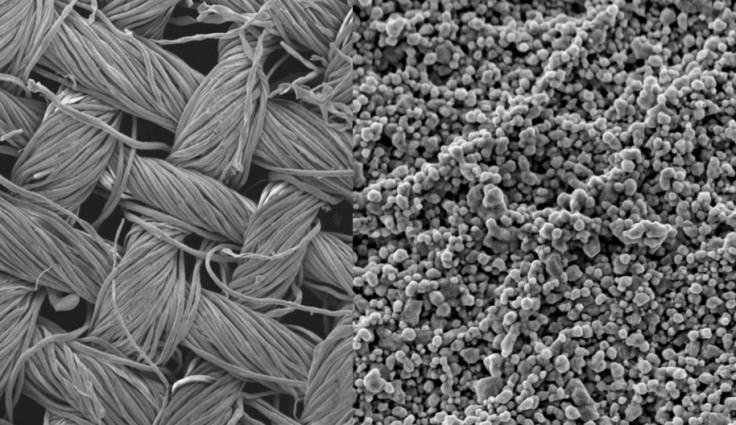Self-cleaning clothes edge closer as scientists create textile cleansed of dirt by sunlight

Clothes that clean themselves are a step closer to becoming a reality after scientists invented a textile that cleanses itself of dirt when exposed to light. The breakthrough resulted from the invention of special nanostructures that degrade organic material when put in direct sunlight or under a light bulb.
The team from Australia's RMIT University developed a cheap and efficient way to grow these nanostructures directly onto textiles. Their findings were published in the journal Advanced Materials Interfaces.
Over recent years, scientists have been working to develop self-cleaning materials through nanotechnology. News of self-cleaning shirts, jeans and suits have emerged in news reports, all harnessing nanotechnology to make materials that clean themselves.
In the latest study, scientists worked with copper and silver-based nanostructures, known for their ability to absorb visible light. When the nanostructures are exposed to light, they get an energy boost resulting in 'hot electrons' that allows organic matter to be broken down.
Tomato sauce and wine
To make the nanostructure viable on an industrial scale, they sought to find a way to permanently attach them to textiles. To do this, the team grew the nanostructures directly onto the material by dipping them in special solutions. After 30 minutes, stable nanostructures had been achieved.
When this material was exposed to light, the team found it took just six minutes for it to start cleaning itself. Study author Rajesh Ramanathan said: "The advantage of textiles is they already have a 3D structure so they are great at absorbing light, which in turn speeds up the process of degrading organic matter.
"Our next step will be to test our nano-enhanced textiles with organic compounds that could be more relevant to consumers, to see how quickly they can handle common stains like tomato sauce or wine."
"There's more work to do to before we can start throwing out our washing machines, but this advance lays a strong foundation for the future development of fully self-cleaning textiles." He added the technology has a number of applications outside of clothing, including pharmaceuticals and natural products.
© Copyright IBTimes 2025. All rights reserved.






















